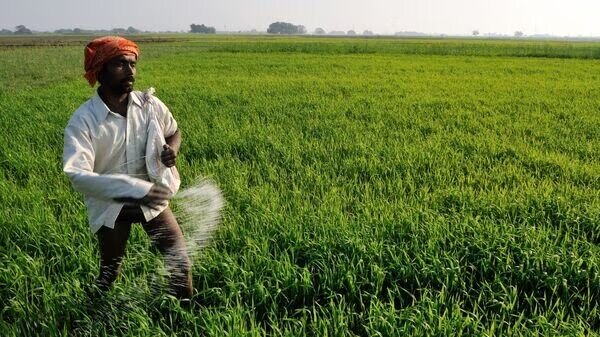Iran, India agree on forming joint agricultural co-op committee

TEHRAN - Agricultural officials of Iran and India have agreed to form a joint committee for agricultural cooperation between the two countries within the next three months, Mehr News Agency reported on Saturday.
As reported, the agreement was reached in a meeting between Iran's Deputy Agriculture Minister Mohammad Mehdi Borumandi and Secretary of India's Agriculture and Farmers Welfare Ministry Manoj Ahuja in New Delhi.
Borumandi, who has traveled to New Delhi to hold talks on the agricultural cooperation between Iran and India, met with his Indian counterpart to review the latest status of bilateral cooperation in the field of agriculture.
The officials also agreed to hold the first joint working group on agricultural cooperation between the two countries in the near future.
In the meeting, Borumandi stressed Iran's readiness for cooperation in various fields including horticultural products, medicinal plants, combating plant pests, agricultural technologies, exchange of professors and experts, and cooperation between research institutions of the two countries.
He considered the removal of tariff barriers on agricultural trade as a necessity for the future expansion of relations.
Manoj Ahuja, for his part, highlighted the cultural and geographical affinities between the two nations and expressed his country's readiness to develop agricultural relations with Iran.
Welcoming the fields proposed by the Iranian side for cooperation, the Indian official announced that the ban on the exports of kiwi to India, which had been temporarily prohibited since last year due to quarantine considerations, has been lifted.
The trade between Iran and India reached $510 million in the first quarter of the current year, according to the data released by India’s Ministry of Commerce and Industry.
According to the report, agricultural products and especially rice had the largest share in India’s exports to Iran. Rice accounted for 63 percent of the total volume of exports, while fruits with $15 million, and tea with $10 million ranked second and third.
EF/MA
Leave a Comment